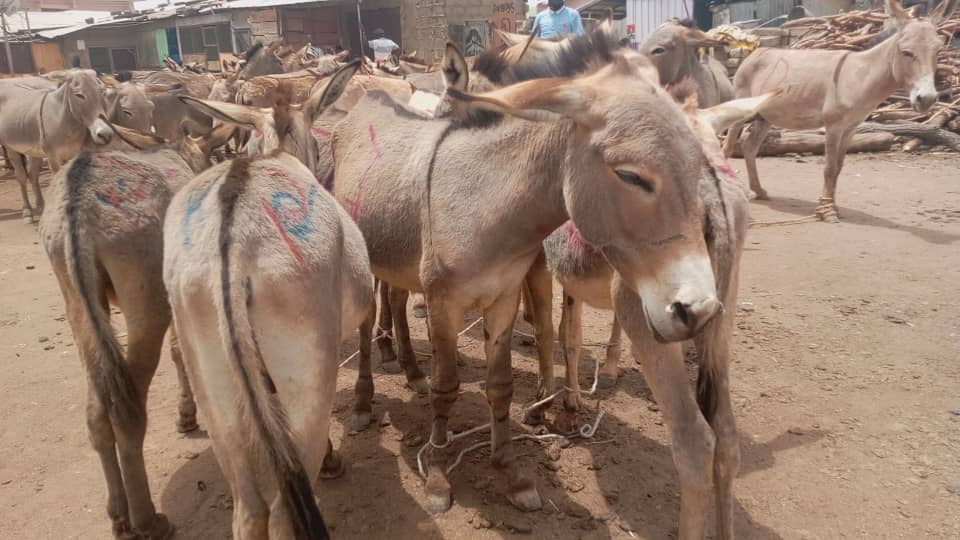Donkey for many years has been considered as one of the most friendly animals for farmers.
But in the wake of donkey skin trading among some Chinese nationals and their Ghanaian counterparts, the animal is now scarce in the Upper East Region.
The animal does not only assist farmers in their farming activities but sometimes help poor families to transport their sick relative to the nearest hospital.
A visit by A1 Radio to the donkey market in the Upper East Region saw that the animal is in short supply and also expensive to acquire.
The traders at the time of A1 Radio’s visit explained that ten years ago the price of a donkey was sold at Ghc400.00 and Ghc600.00, but now it cost between Ghc950.00 and Ghc1,500.00 respectively.
Mark Atanga, a lead trader of donkeys in the Bolgatanga Market, noted that the animal was in short supply and could soon be in extinction because of the high demand for donkey skins by some Chinese and the meat by some Ghanaians.
He said “The emerging of donkey skin business has made the animal become the most expensive animal in the region. Now, in the region here, if you are looking for an old donkey to buy it will take you months or perhaps a year before you will even come across one. As you can see all that we are selling here, fall within five to seven years and not ten or fifteen years. The animal is scarce. Some of us often travel to neighboring countries in search of donkeys to buy. Sometimes you will travel for long distances and if you are lucky you may get two or five to buy and come and sell.”
He also stressed that coronavirus perhaps could also play a role in the high prices of the animal as the virus has restricted the movement of traders to some neighboring countries.
Meanwhile, reports have revealed that Chinese traders who buy these donkey skins from developing countries use them to manufacture a traditional Chinese medicine called ejiao.
The ejiao they say help in improving blood circulation and are used as a blood tonic by people with anemia, low blood cell counts, or reproductive problems.
Source: A1radioonline.com|101.1 MHz|Moses Apiah|Ghana


